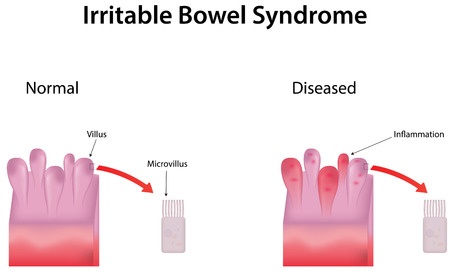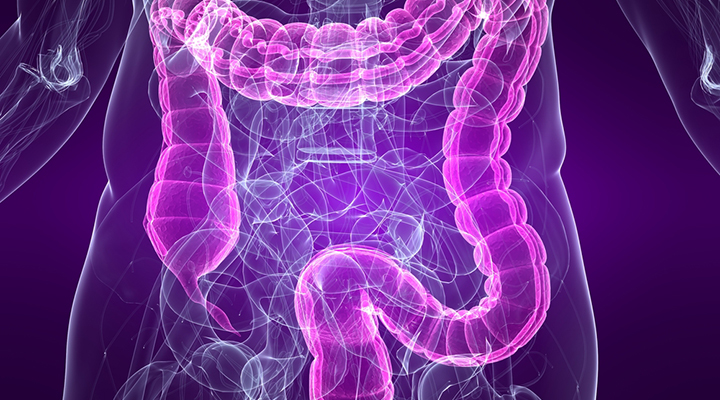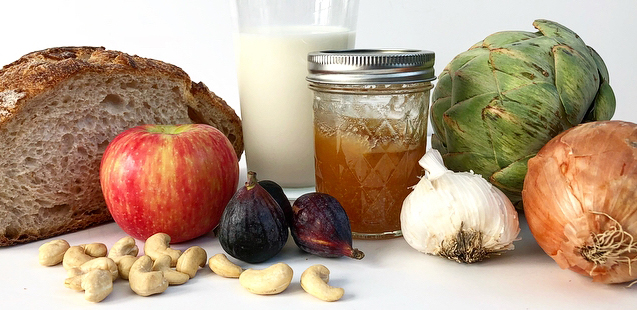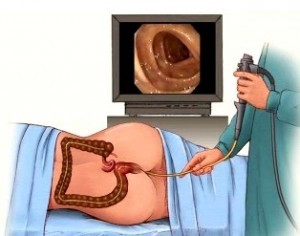Are you familiar with the Irritable Bowel Syndrome? Well, the root of this disease can be found in actual problems with the patient’s health that have to be treated in order to treat the Irritable Bowel Syndrome symptoms. There is no particular order of the IBS causes, but generally, there are a couple of categories we can separate them into.



Irritable Bowel Syndrome Causes
Table of Contents
- Irritable Bowel Syndrome Causes
- 1. Carbohydrate Malabsorption
- 2. Gut Dysbiosis
- 3. Dairy Intolerance
- 4. Gluten Sensitivity
- 5. Crohn’s Disease
- 6. Celiac Disease
- 7. SIBO – Small Intestinal Bacterial Overgrowth
- 8. Ulcerative Colitis
- 9. Antibiotic Use
- 10. Egg Intolerance
- 11. Probiotics Intolerance
- 12. Chronic Stress
- 13. Low Stomach Acid
- 14. Female Hormones
Irritable Bowel Syndrome Causes
The most common causes of IBS are:
1. Carbohydrate Malabsorption
When the disaccharide and poly carbohydrates we consume are not normally broken down, this may cause digestive problems such as IBS. More specifically, the complex carbohydrates such as quinoa, rice or wheat are often known to cause diarrhea, bloating, gas and other of the most common IBS symptoms. Even though these are known as good for people’s health, they can cause such symptoms.
When the body is somehow damaged due to toxins, bad bugs, stress and toxins we are exposed to every day, the intestine’s ability to digest the food we are consuming is greatly lowered. In the cases where the gut lining becomes less able or unable to split the sugar molecules, they start hovering around the person’s small intestine. When this happens, the body does not absorb these sugars and provides the body with bacteria instead. This is why the symptoms occur.
In cases where the cause of IBS is the carbohydrate malabsorption, the patient should ask for medical help and get proper treatment. A proper treatment would be a specific carbohydrate diet, based on a fructose or lactose breath test.
2. Gut Dysbiosis
The second in our list of causes of irritable bowel syndrome is the gut dysbiosis. When the gut flora is being disrupted, we are starting to have a big problem in our gut. You may not know this, but every person actually has over 100 trillion bacteria in the intestines, all working towards its functioning. When the bacteria are somehow disrupted, the health of the person is at risk because yeasts, parasites and bad bacteria may take over. In such cases, we experience symptoms such as constipation, gas, diarrhea and bloating.
3. Dairy Intolerance
Some people are unable to properly digest goat, sheep or cow milk products. More specifically, we cannot digest the proteins and carbohydrates that are contained in certain or all types of milk products. When we consume the products, we start experiencing IBS symptoms like gas, bloating or diarrhea.
The carbohydrate in the milk is lactose, so this is also called lactose intolerance. This is why people who start experiencing IBS symptoms after consuming dairy should stop and see whether any changes will happen. There are also lactose tolerance breath tests to be done or an Entorolabs test that checks the patient’s ability to handle the protein casein.
4. Gluten Sensitivity
Sensitivity to gluten may cause irritable bowel syndrome. According to researchers, there are people who react to wheat and experience IBS symptoms. This means that certain proteins and chemicals in the wheat cause diarrhea, which is a known IBS symptom.
5. Crohn’s Disease
The fifth one is an inflammation of the bowel in people that can be found from the mouth down to the anus. This disease is more severe and occurs in cases of IBD, but can also cause IBS symptoms. It can affect any digestive tract area and come in many forms. The most common symptom, in this case, is diarrhea.
An endoscopy and colonoscopy are used to check for Crohn’s disease.
6. Celiac Disease
We are now speaking of an autoimmune condition that is often connected to gluten sensitivity. However, a person can be sensitive to gluten but test negative for this disease.
In the case of celiac disease, the small intestine finds it hard to absorb and digest foods due to damage. In such cases, the wheat we consume continues to damage its wall, which in term creates further autoimmunity. Every wheat grain contains a certain toxic component that puts people with celiac disease at risk.
7. SIBO – Small Intestinal Bacterial Overgrowth
Doctors use a lactulose breath test to check whether a person has an overgrowth of bacteria located in the small intestine or SIBO. As we said, bacteria are present and normal in the intestines, but as long as it is in what is considered to be a normal number. The majority of bacteria is actually located and should remain in the large intestine.
When the bacteria move from the large to the small intestine for some reason, this causes troubles and IBS.
8. Ulcerative Colitis
Ulcerative Colitis is an inflammatory disease of the bowel, usually affecting the large intestine in people. You can notice the presence of this disease on the wounds in the large intestine. These wounds do not heal and cause diarrhea and abdominal pains in patients. Diarrhea symptoms can range from mild to severe.
A colonoscopy should show your doctor whether or not you have wounds on the large intestine.
9. Antibiotic Use
If you consume antibiotics for an extended or repeated period, regardless of the reason, these medications can lower the bacteria number and species in your intestines and digestive tract in general. Good bacteria are necessary for the functioning of the digestive tract, but antibiotics are killing off the bacteria in the body.
Even though sometimes the use of antibiotics is inevitable and really important for our health, using huge doses or repeatedly exposing your body to antibiotics can cause serious IBS symptoms. Additionally, there are studies that show that antibiotics can seriously damage the gut flora and do so long-term.
10. Egg Intolerance
People can develop an immune expose to eggs, too, especially in cases of a leaky gut. When this happens, inflammation and other issues may occur in the digestive tract.
The eggs contain albumin, which is a protein that sometimes causes problems in some people. When the body is in a state of sickness, it is more at risk of mounting a reaction to the eggs, which causes IBS symptoms, most likely diarrhea. In many cases, people report diarrhea occurring several hours after they have consumed eggs.
11. Probiotics Intolerance
Loose stools and diarrhea are repeatedly occurring in people who are intolerant to probiotics. Even though probiotics are known to be extremely beneficial and are highly recommended to people, in some rare cases, they can cause IBS symptoms.
12. Chronic Stress
Of course, it is stress. Stress is the most common cause of nearly every problem in the human body. In some cases, even if something else is the case, stress can worsen the symptoms of the condition. The same is the case here.
The response of the body to the stress can range from a person to person. This response is actually a chemical process that may cause some serious long-term problems, such as digestive tract inflammation.
Even though the stress is a normal occurrence we all experience at a certain point, this is not something that should be happening very often. When a person is stressed often, the body is suffering. The stress chemicals in the body remain high, which can deplete the ability of the body to reduce the inflammation and self-heal.
Many people have reported experiencing IBS symptoms due to stress. More specifically, stress is known to cause abdominal pain, diarrhea or loose stools.
13. Low Stomach Acid
There are two cases of low stomach acid: hypochlorhydria and achlorhydria. In these cases, the body lacks producing enough acid that can digest the food a person consumes. As a result, the patient may experience GI distress and of course, IBS symptoms.
When the stomach does not manage to produce sufficient acid that the body needs to digest the food we consume, this is a problem. The food then ferments and is often flushed out of the body because the body sees it as something bad.
14. Female Hormones
It is proven that the majority of people who suffer from Irritable Bowel Syndrome are actually females. Therefore, it is even understandable that one of the most common causes of IBS is actually female hormones.
Many people experience the symptoms of IBS or experience worsening, more frequent symptoms of the condition when they have their period.













